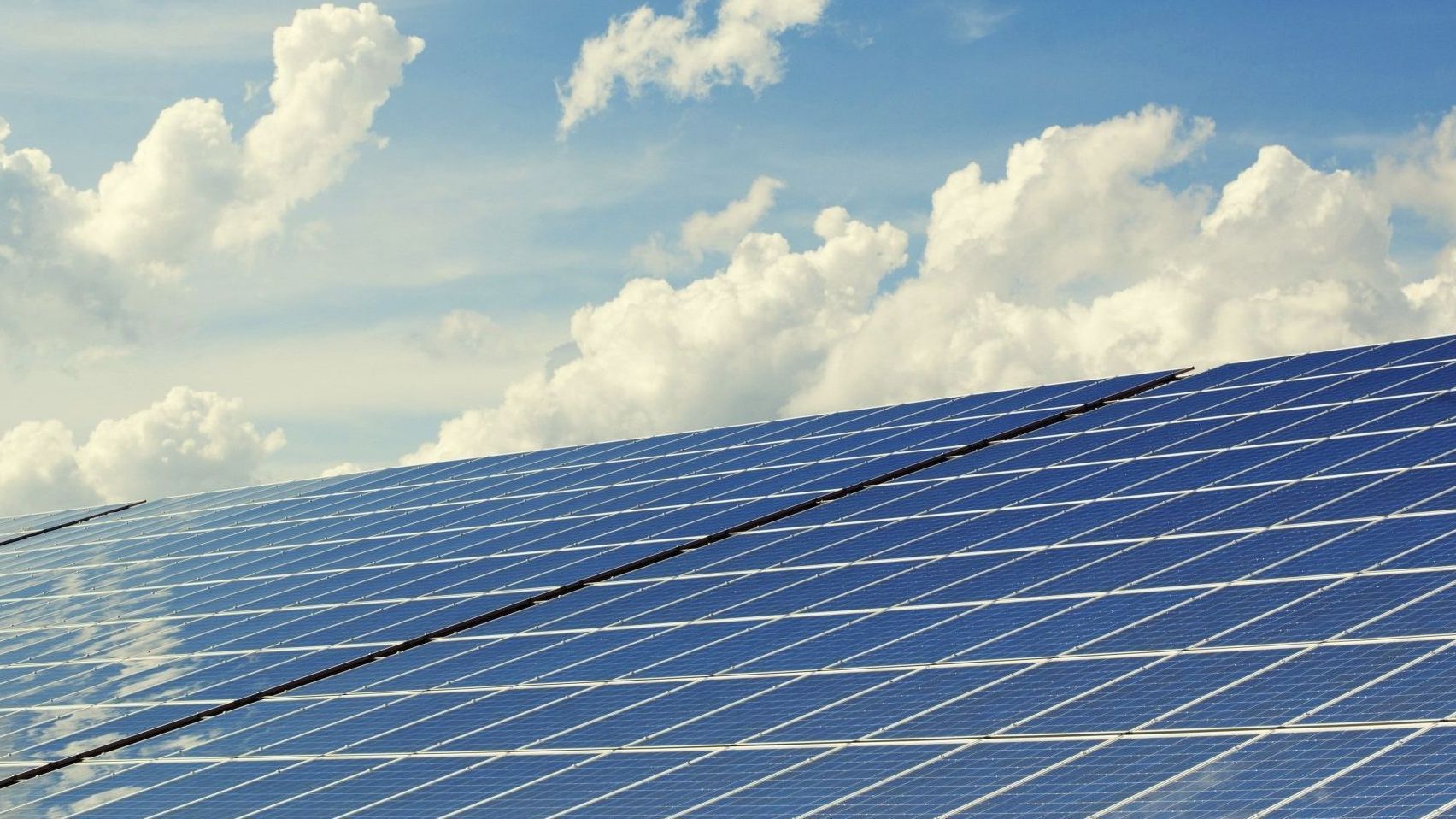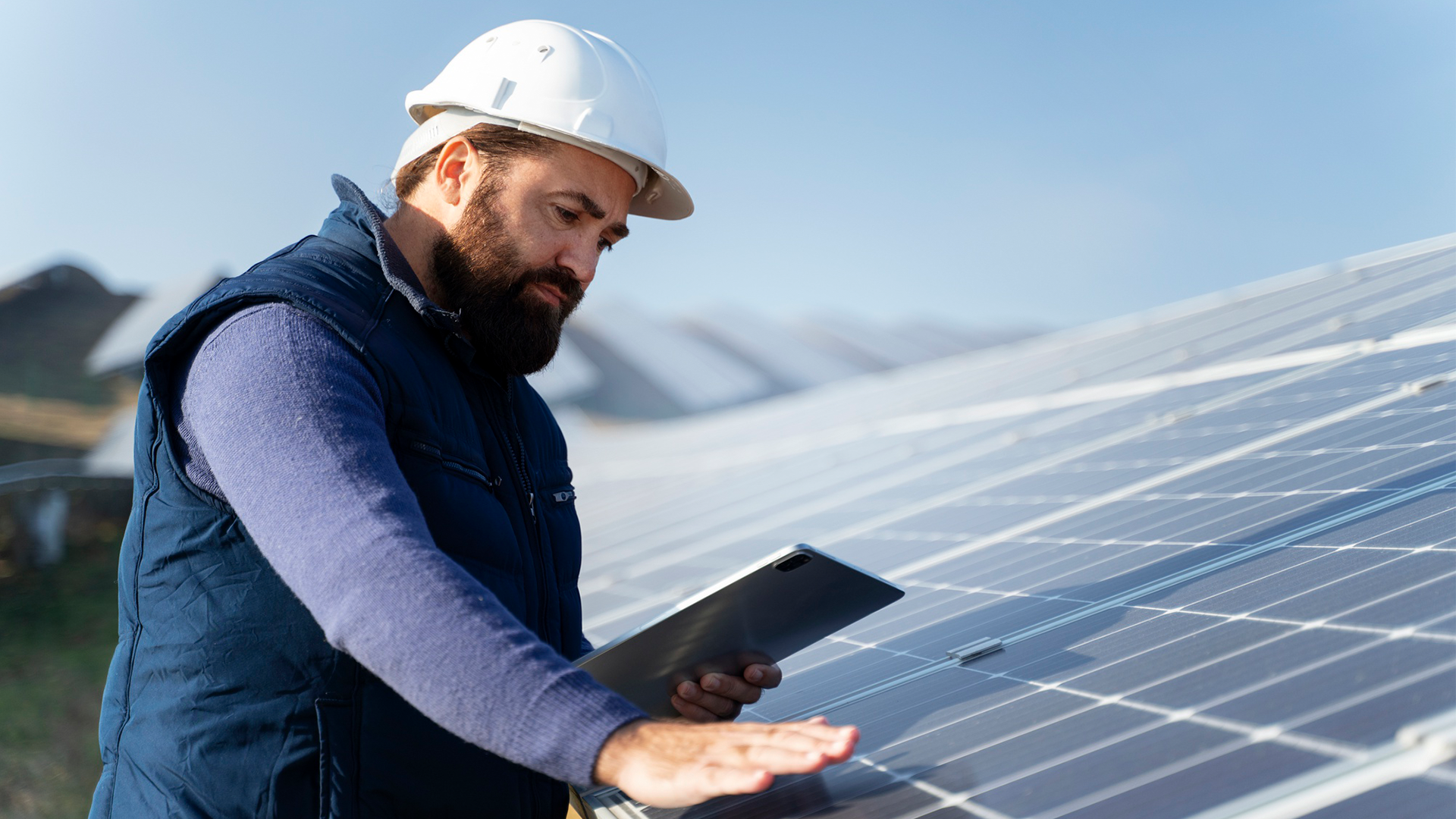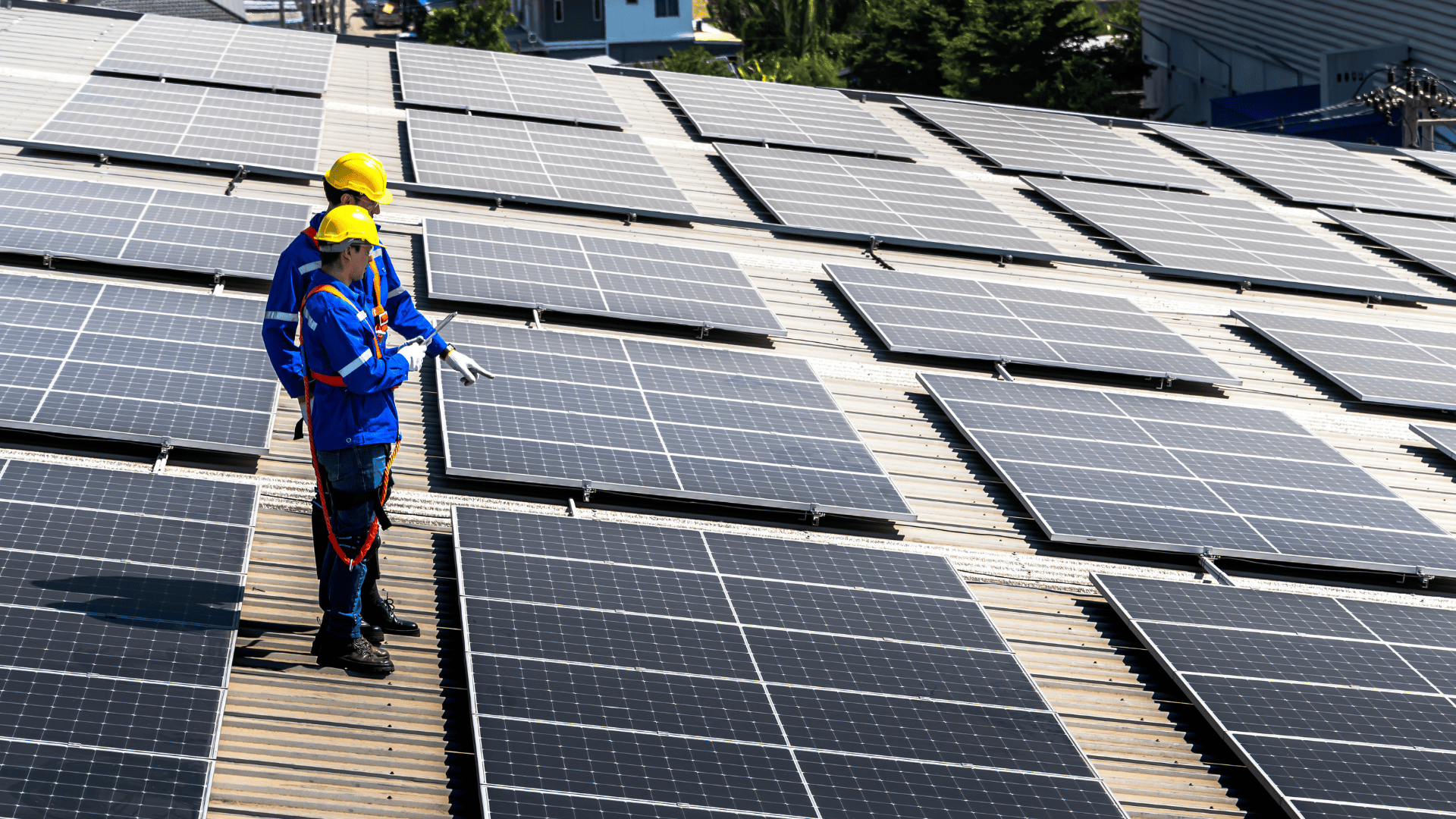August 21, 2023
Are you wondering how billing work with solar panels? Maybe you're looking into going solar for your property to reduce costs you currently are incurring but want to see how it is broken down. Or if you're already using solar power to run your house, then it's no surprise that you probably have a few questions about how solar billing works. Well, you came to the right place!
Hey, this is Josh Dubin, the co-founder of Sunbase. We work with hundreds of Solar installers to provide Solar CRM software for solar companies so they can help more people by setting up solar systems.
With that being said, let's get into it!
How does Solar Energy Save Costs?
A solar energy bill that comes monthly depends on several factors. Examples of such factors can be the amount of sunlight that falls on your solar panels, and the angle at which your panels are tilted towards the sun. This bill is sent to you by the solar company you purchased your solar panels from. This bill can be based on a solar lease, solar PPA, and a solar loan.
Solar power production has become a need of the hour these days when alternative energy sources are being frowned upon by all environmentalists. Additionally, it also saves up a good proportion of your energy bills every month.
Initially, solar panels were only being used by companies and factories to power their corporations or manufacturing sites.
However, recently, over the past few years, solar power production has been taken up by private individuals as well who power their houses and reduce their electricity bills substantially.
Solar panels have been a great help to people so far, but the only thing that seemed to be restricting these panels to get all their deserved fame was their installation and maintenance costs. Now with new technologies coming into play, solar energy system has become more affordable than ever before!

The dynamics work in a way that when individuals are involved in power purchases under normal circumstances, their bills are reduced by how much energy they have produced over the past time using solar energy systems.
If the solar panels installed are good enough, there is a high chance that you will save up a significant portion of your electricity bill every month by going solar.
Three types of Financing for a Solar Project
There are three major kinds of solar billing setups that solar installation companies send out to their customers.
The three ways to fund a solar project are by-
- Solar Lease
- Solar PPA
- Solar Loan
Solar Lease-
Solar Lease is a good choice for those who do not wish to own a solar system but still want the benefits of installing solar panels in their homes. A solar lease ensures that you get your electricity bills reduced without having to spend money on owning and maintaining the system. It is an easy, convenient, and risk-free way to reduce energy bills.
Yet, it is recommended that homeowners have their own setup and build equity in their investment until it's fully theirs as the loan payments will make their total energy costs lower even when you add the financing payments.
Solar Loan-
Solar Loan is like an auto loan in which you will be paying fixed monthly payments over the term. This will be paid to the financier who financed your panels.
This seems similar to the solar lease but is different in principle in a way that it has nothing to do with the energy your panels produce over their lives.
Solar lease involves the company sending you the same amount of bill monthly. The fixed monthly payments that are shown on your bill every month are determined by the total amount of power that your solar panels are supposed to produce in their entire useful life. That amount is divided by the total number of lease payments that you are supposed to make.
Solar PPA-
The Power Purchase Agreement (PPA). The Solar PPA determines very clearly the rate of every kilowatt-hour (kWh) of energy produced by your panels. The agreement has a very interesting relationship with the total amount of money you pay out for the electricity you consume throughout a period. For instance, on sunnier days, you will have to pay more to the solar company as the kilowatts of energy produced will be much higher, but at the same time, the money savings you achieve will also be big as more and more of your energy usage will be from the solar source.
Solar power is a great way to lower your electric bill and reduce your environmental footprint. You might also qualify for cash rebates on the cost of solar installations, grants, or tax incentives that could save you up to 25% of the project cost. To see state-wise incentives and financing of solar systems available, click here!
If the solar loans that you have to pay are less than your energy savings, then not only will you get cheaper electricity but also a system that pays for itself.
What is Net Energy Metering?
Net energy metering is a billing mechanism that credits solar home system owners for the excess electricity they generate and sends back to the grid. If you produce more energy than what you use, then your meter will run backward as if there's been an outage.
With net energy metering, a utility company only bills customers according to how much power they used from the grid minus how much of their own power they generated. Net-metered homes are connected to the grid but can sell excess generation back to utilities at retail rates as part of their supply mix.
Key Considerations When Installing a Solar Panel System
When embarking on the journey to install solar panels and set up a solar panel system, it's essential to keep certain key factors in mind. These considerations can help you make an informed decision about harnessing excess solar energy and reaping the benefits of sustainable power generation.
Here are some valuable tips and reminders to guide you through the process:
Evaluate Your Energy Needs:
Before proceeding with a solar panel installation, assess your household or office's energy requirements. Understanding your average monthly energy consumption will help you determine the appropriate size and capacity of the solar system you need.
Optimal Sunlight Exposure:
Consider the availability of sunlight at your installation site. Choose a location where solar panels can receive maximum sunlight throughout the day. Proper panel orientation and positioning are vital for maximizing energy production.
Avoid Over or Under-Equipping:
Striking the right balance is crucial. Ensure that the solar panel system you install aligns with your energy needs. Avoid overestimating or underestimating your requirements, as both scenarios can impact the effectiveness of your solar setup.
Financial Feasibility:
Explore financing options that align with your goals. If the potential savings from solar energy exceed the financing costs, it becomes a viable and advantageous proposition. Compare different financial avenues, such as Solar Lease, Solar PPA, and Solar Loan, to determine the best fit for your situation.
Consider Ownership:
While leasing solar systems is an option, owning your solar panel system offers long-term benefits. Ownership provides greater control over energy production, potential higher returns on investment, and increased equity in your renewable energy infrastructure.
Partnering with a Reputable Installer:
Collaborate with a reputable solar installation company. Research their track record, reviews, and expertise to ensure a seamless and efficient installation process. A trusted installer can help you make the most of your solar investment.
Future Expansion and Upgrades:
Plan for future expansion or upgrades to accommodate changing energy needs. Opt for a flexible solar panel system that can be easily scaled up or integrated with emerging technologies.
Net Energy Metering:
Understand how net energy metering works in your region. This billing mechanism allows you to receive credits for excess solar energy you feed back into the grid. Familiarize yourself with the regulations and benefits of this arrangement.
Environmental Impact:
Installing solar panels not only reduces energy bills but also contributes to a cleaner environment. Embrace the opportunity to decrease your carbon footprint and play a part in promoting sustainable energy practices.
Educate Yourself:
Stay informed about advancements in solar technology, government incentives, and local regulations. Continuously educate yourself to make well-informed decisions that align with your energy goals.
By keeping these tips and reminders in mind, you can navigate the process of installing a solar panel system with confidence.
If you can finance solar systems to reduce the solar bill that's more than the finance charge, then it's a no-brainer to going solar.
Conclusion
Understanding how solar billing works is crucial for those exploring or currently utilizing solar panels. Solar power provides an effective means to curb energy expenses and minimize environmental impact. Various factors, including sunlight exposure and panel orientation, influence monthly bills, rendering solar a practical choice for residences and enterprises.
The three main billing options – Solar Lease, Solar PPA, and Solar Loan – present distinct financial avenues for harnessing solar energy. Net energy metering further magnifies advantages by crediting surplus solar energy fed back into the electric grid. Thoughtful consideration of prerequisites, energy consumption, and panel positioning is pivotal when contemplating a solar installation.
Though the initial investment may appear substantial, the long-range potential for savings in utility costs substantiates the outlay. Disseminating this comprehensive guide can empower others to make informed decisions regarding the integration of solar power and its interaction with the electricity grid.
If you found this article helpful, don't forget to share it with your friends and family who might be thinking of going solar too. Or if you are a solar company you can contact us or book a demo to check out our all-in-one solar CRM software for your solar company!
I agree to receive marketing messaging from Sunbase at the phone number provided above. I understand data rates will apply, and can reply STOP to OPT OUT.







